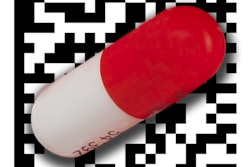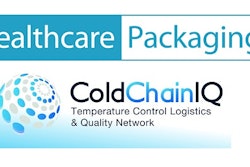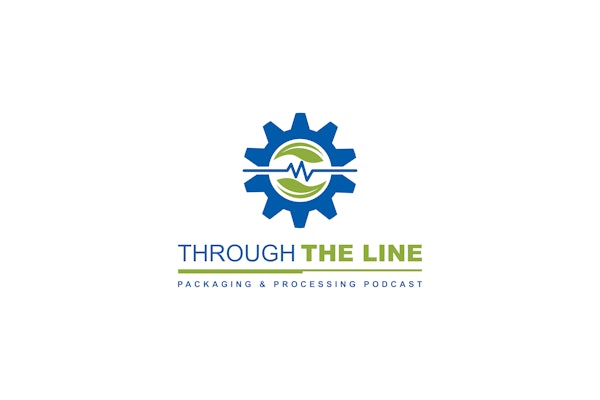
Healthcare executives around the world are investing in their supply chains as they prepare for continued global growth in an increasingly complex and dynamic environment, according to data from the fifth-annual UPS (www.ups.com/healthcare) “Pain in the (Supply) Chain” healthcare survey.
The top two planned investments for healthcare companies globally—as cited by 83% of decision-makers—are tapping into new global markets and investing in new technologies. Survey respondents plan to employ both strategies over the next three to five years to increase their competitiveness, maintain product integrity, and gain efficiencies. The top four countries where companies will focus expansion efforts over the next three to five years are China, the U.S., Brazil, and India.
While planning investments, healthcare decision-makers remain “cautious” on the state of the industry. They cite as challenges a difficult economic environment, pressures to reduce costs, and struggles with increasing regulations and reform.
Despite signals of investing, barriers to global expansion remain. The top barrier: Country regulations, according to 46% of executives. Country regulations have remained the top barrier to global expansion each of the past three years. Other barriers to expansion include intellectual property protection concerns and product quality and security concerns, cited by 33% and 27%, respectively.
“Healthcare companies are feeling the pressure to expand and drive new growth while containing costs and ensuring compliance around the globe,” says Bill Hook, vice president, global strategy, UPS Healthcare Logistics. “That has only heightened the need to build more global flexibility, integration, and transformation into the healthcare supply chain.”
Top business and supply chain concerns
Globally, the top healthcare business concerns include increasing regulations—the top concern cited by 52%—as well as healthcare reform and other changes in legislation, cited as a concern by 51%. Intellectual property protection ranks third on the list of top concerns, cited by 48%. Concerns around intellectual property protection are highest in the U.S. and Asia.
The number one specific supply chain concern is regulatory compliance, noted 65% of respondents. Cost management was second at 60%. Only 41% reported success in managing their supply chain costs. In addition to regulatory compliance and managing supply chain costs, product security and product integrity have risen to the third most cited supply chain issue, reported by 57%. In emerging markets, it is a more significant concern as it is ranked first or second by survey respondents.
“Concerns around regulatory compliance and cost management have been constants for healthcare supply chain decision-makers over the past five years while we've seen growth in concern around areas such as product security and product protection,” says Scott Szwast, UPS Healthcare Segment Marketing Director. “While these areas will always be a focus in the healthcare industry, companies can experience positive impact by examining strategies such as increased collaboration, adopting segment-based supply chains, and leveraging new innovative models and technologies.”
Views on economy and industry
In addition to exploring top business and supply chain concerns, the survey probed healthcare decision makers' views on the economy based on what they are seeing within their own companies. Healthcare decision-makers in the U.S. were slightly less optimistic on the economy, with 53% reporting they're still feeling economic impacts in terms of tightened spending and other reductions. This compared to 43% in Latin America, 35% in Western Europe, and 26% in Asia that are still feeling economic impacts.
U.S.-based decision-makers also were asked their views on the state of the healthcare industry against the goals of the new reform law. The largest group—38%— are “cautiously optimistic” of progress, yet 26% espouse a “negative” view, while another 22% say they are “neutral.”
Five-year trends
Over the past five years, a top trend in the healthcare industry has been increasing global growth with companies ramping up expansion into new markets each year. With the rise of increasing globalization, healthcare executives have reported growing concerns around the areas of product protection and intellectual property protection. Product protection concerns include both product security and the issue of product damage and spoilage. Concerns around intellectual property protection have grown every year for the past three years.
The survey's five-year data also illustrates the “constants” in the industry that have continued to challenge healthcare supply chain decision makers. Concerns around cost management and regulatory compliance top the list of industry constants over the past five years.
“The five-year survey trends underscore what we are hearing from all segments of the healthcare marketplace,” says Hook. “From industry leaders to middle market companies, healthcare companies are looking for ways to be more collaborative, provide integrated solutions, and address segmentation issues around their customers. This information has been critical in continuing UPS's success as a global leader in healthcare logistics.”
Editor's Note: The UPS “Pain in the (Supply) Chain” survey was a blind, in-depth phone survey conducted by TNS on behalf of UPS of approximately 375 healthcare executives in the U.S., Western Europe, Asia, and Latin America. Qualified respondents were senior-level decision-makers responsible for supply chain and logistics in the pharmaceutical, medical device and biotech industries. Surveys were conducted in April and May 2012.
The top two planned investments for healthcare companies globally—as cited by 83% of decision-makers—are tapping into new global markets and investing in new technologies. Survey respondents plan to employ both strategies over the next three to five years to increase their competitiveness, maintain product integrity, and gain efficiencies. The top four countries where companies will focus expansion efforts over the next three to five years are China, the U.S., Brazil, and India.
While planning investments, healthcare decision-makers remain “cautious” on the state of the industry. They cite as challenges a difficult economic environment, pressures to reduce costs, and struggles with increasing regulations and reform.
Despite signals of investing, barriers to global expansion remain. The top barrier: Country regulations, according to 46% of executives. Country regulations have remained the top barrier to global expansion each of the past three years. Other barriers to expansion include intellectual property protection concerns and product quality and security concerns, cited by 33% and 27%, respectively.
“Healthcare companies are feeling the pressure to expand and drive new growth while containing costs and ensuring compliance around the globe,” says Bill Hook, vice president, global strategy, UPS Healthcare Logistics. “That has only heightened the need to build more global flexibility, integration, and transformation into the healthcare supply chain.”
Top business and supply chain concerns
Globally, the top healthcare business concerns include increasing regulations—the top concern cited by 52%—as well as healthcare reform and other changes in legislation, cited as a concern by 51%. Intellectual property protection ranks third on the list of top concerns, cited by 48%. Concerns around intellectual property protection are highest in the U.S. and Asia.
The number one specific supply chain concern is regulatory compliance, noted 65% of respondents. Cost management was second at 60%. Only 41% reported success in managing their supply chain costs. In addition to regulatory compliance and managing supply chain costs, product security and product integrity have risen to the third most cited supply chain issue, reported by 57%. In emerging markets, it is a more significant concern as it is ranked first or second by survey respondents.
“Concerns around regulatory compliance and cost management have been constants for healthcare supply chain decision-makers over the past five years while we've seen growth in concern around areas such as product security and product protection,” says Scott Szwast, UPS Healthcare Segment Marketing Director. “While these areas will always be a focus in the healthcare industry, companies can experience positive impact by examining strategies such as increased collaboration, adopting segment-based supply chains, and leveraging new innovative models and technologies.”
Views on economy and industry
In addition to exploring top business and supply chain concerns, the survey probed healthcare decision makers' views on the economy based on what they are seeing within their own companies. Healthcare decision-makers in the U.S. were slightly less optimistic on the economy, with 53% reporting they're still feeling economic impacts in terms of tightened spending and other reductions. This compared to 43% in Latin America, 35% in Western Europe, and 26% in Asia that are still feeling economic impacts.
U.S.-based decision-makers also were asked their views on the state of the healthcare industry against the goals of the new reform law. The largest group—38%— are “cautiously optimistic” of progress, yet 26% espouse a “negative” view, while another 22% say they are “neutral.”
Five-year trends
Over the past five years, a top trend in the healthcare industry has been increasing global growth with companies ramping up expansion into new markets each year. With the rise of increasing globalization, healthcare executives have reported growing concerns around the areas of product protection and intellectual property protection. Product protection concerns include both product security and the issue of product damage and spoilage. Concerns around intellectual property protection have grown every year for the past three years.
The survey's five-year data also illustrates the “constants” in the industry that have continued to challenge healthcare supply chain decision makers. Concerns around cost management and regulatory compliance top the list of industry constants over the past five years.
“The five-year survey trends underscore what we are hearing from all segments of the healthcare marketplace,” says Hook. “From industry leaders to middle market companies, healthcare companies are looking for ways to be more collaborative, provide integrated solutions, and address segmentation issues around their customers. This information has been critical in continuing UPS's success as a global leader in healthcare logistics.”
Editor's Note: The UPS “Pain in the (Supply) Chain” survey was a blind, in-depth phone survey conducted by TNS on behalf of UPS of approximately 375 healthcare executives in the U.S., Western Europe, Asia, and Latin America. Qualified respondents were senior-level decision-makers responsible for supply chain and logistics in the pharmaceutical, medical device and biotech industries. Surveys were conducted in April and May 2012.
Companies in this press-release





















